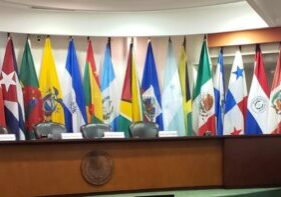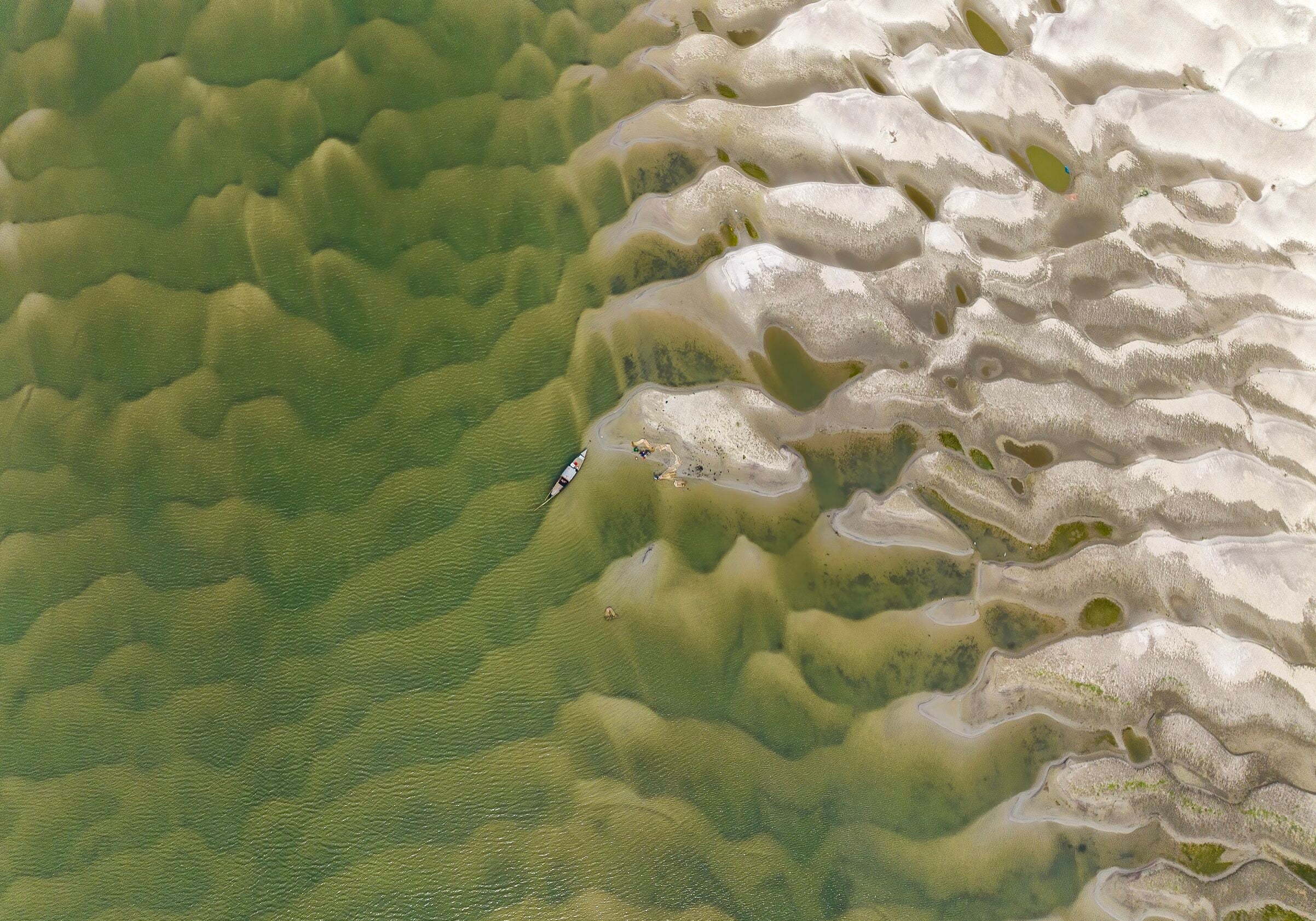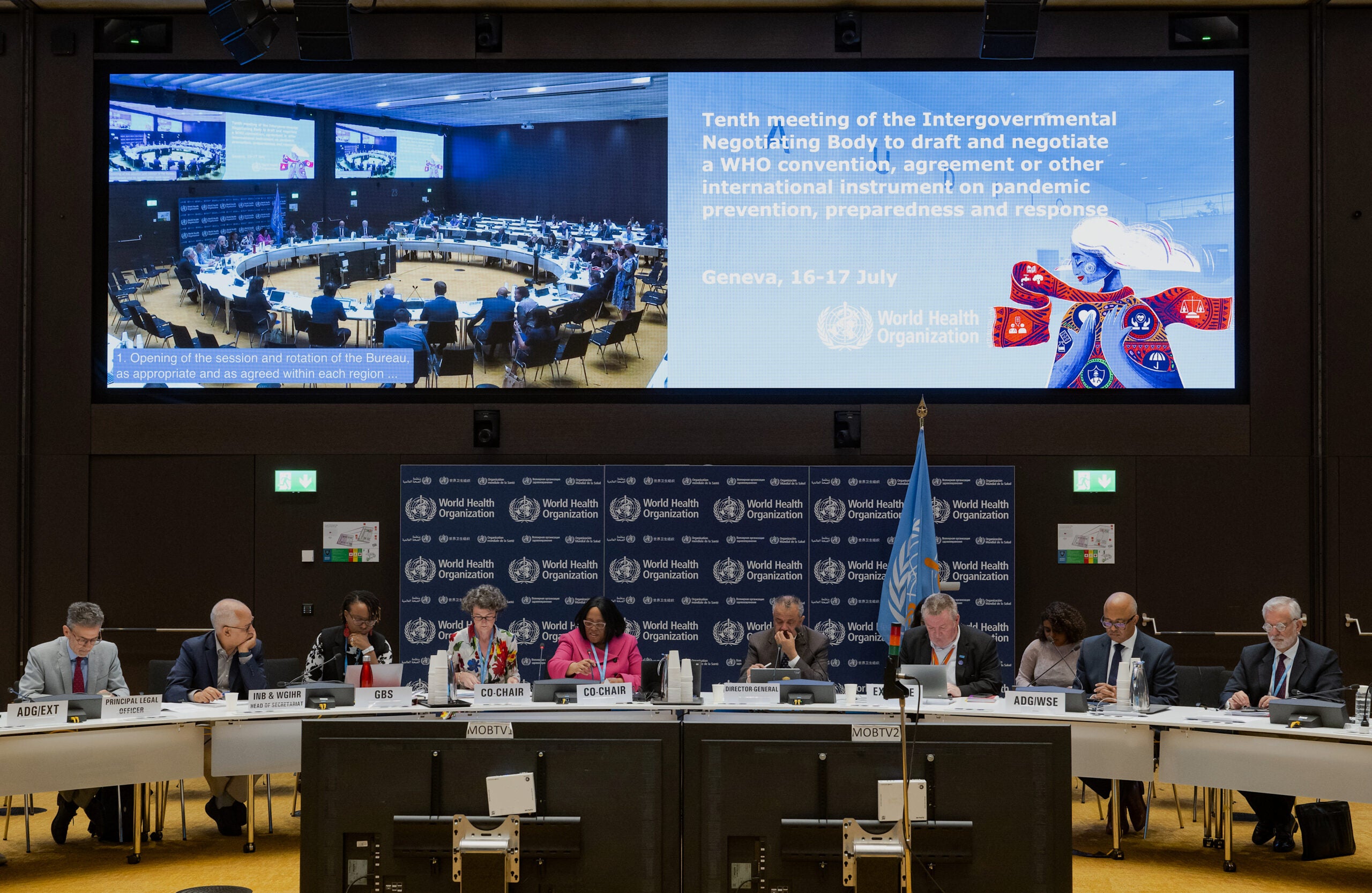CIL Dialogues
An International Law Blog
CIL Dialogues is the re-imagination of the existing blog of the Centre for International Law (CIL) of the National University of Singapore (NUS). The editorial team’s approach to CIL Dialogues reflects two shared commitments. First, we share a generalist perspective of international law, viewed as raising shared foundational questions across specialised fields, institutions, regions, and inquiries. Secondly, we are appreciative that CIL Dialogues is not based in (the virtual space of), or associated with institutions in the ‘Western European and Others States Group’. The blog will therefore be interested in international law broadly conceived and seek to be attentive to regional perspectives to questions of universal and general relevance, particularly relating to Asia Pacific, as well as the views and voices that may have been traditionally excluded. More...
Featured Blogs ...
Addressing the Criticisms against the United Nations Convention against Cybercrime
by Nguyen Thanh Trung
Key contentions at the Hearings on the ICJ Advisory Opinion on climate change
by Danilo B. Garrido Alves and Efstathios-Effraim Giannidakis
Dispute Settlement under the Regional Comprehensive Economic Partnership: Part 2: Is Article 19.18’s Special and Differential Treatment Necessary? by Yvette Foo Following Part 1 which examined key procedural provisions of Chapter 19, Part 2 now discusses Article 19.18 of RCEP, which purports to provide special and differential treatment (SDT) to Least Developed Country Parties (LCDP(s)) at …
Dispute Settlement under the Regional Comprehensive Economic Partnership: Part 1: An Overview of Chapter 19 by Yvette Foo The Regional Comprehensive Economic Partnership Agreement (RCEP) is a mega-free trade agreement (FTA) between fifteen countries that has recently entered into force. What makes the agreement remarkable is its sheer size and coverage, and concomitant impact as a …
THE 2022 AMENDMENTS TO THE ICSID ARBITRATION RULES: INCREMENTAL IMPROVEMENTS AGAINST THE BACKDROP OF ISDS REFORM Charalampos Giannakopoulos* On 21 March 2022, the member states of the International Centre for Settlement of Investment Disputes (ICSID) approved by overwhelming majority a comprehensive set of amendments to the Centre’s rules. The ICSID rules amendment process had been long …
RUSSIA’S POST-CONFLICT OBLIGATION TO COMPENSATE by Romesh Weeramantry The harrowing footage of civilian displacement and property destruction resulting from Russia’s invasion of Ukraine brings to mind the importance of a recent but overshadowed milestone – on 13 January 2022 Iraq finally satisfied its compensation obligations that resulted from its invasion of Kuwait. The Kuwait invasion compensation program …
Russia’s Post-Conflict Obligation To Compensate by Romesh Weeramantry Read More »
To Close or Not to Close the Turkish Straits under Article 19 of the 1936 Montreux Convention Regarding the Regime of the Straits by Nilüfer Oral Centre for International Law – NUS President Zelensky’s request to Turkey to invoke Article 19 On 24 February 2022, Ukrainian President Zelensky requested the Turkish Government to close the Turkish Straits for …
SUPREMELY PRAGMATIC: THE UK SUPREME COURT’S JUDGMENT IN “MADURO BOARD” OF THE CENTRAL BANK OF VENEZUELA V “GUAIDÓ BOARD” OF THE CENTRAL BANK OF VENEZUELA MASSIMO LANDO Assistant Professor, School of Law, City University of Hong Kong Global Fellow, Centre for International Law, National University of Singapore THE LEGAL ISSUES: RECOGNITION AND ACT OF STATE …
The gift that keeps on giving: The ICJ’s Orders on Provisional Measures in the Cases between Armenia and Azerbaijan MASSIMO LANDO Assistant Professor, School of Law, City University of Hong Kong Global Fellow, Centre for International Law, National University of Singapore Two “tit-for-tat” requests for provisional measures On 7 December 2021, the International Court of Justice …
Approaches to Advisory Procedure in the Right to Vote Advisory Opinion of the African Court on Human and Peoples’ Rights MASSIMO LANDO Assistant Professor, School of Law, City University of Hong Kong Global Fellow, Centre for International Law, National University of Singapore A Little Noticed Pandemic-related Case We may have become accustomed to living in …
Remote Arbitration Hearings in the Asia-Pacific Region by Arthur Tan In the context of COVID-19, various judicial proceedings have necessarily been conducted remotely. Arbitral proceedings are no exception. With the current difficulties surrounding international travel, knowing if virtual hearings are an option and in what circumstances they might be ordered is of some importance to …
Remote Arbitration Hearings in the Asia-Pacific Region by Arthur Tan Read More »
New Paris Agreement Rules Will Enable the Growth of International Carbon Markets by Brian Chang Although the conclusion of the recent COP26 climate change summit in Glasgow was marred by the last-minute watering-down of text relating to the use of coal, this should not overshadow the significant accomplishments that were achieved, including the long-awaited agreement …
A Trip Down Memory Lane: The Judgment of the International Court of Justice in Maritime Delimitation in the Indian Ocean (Somalia v Kenya) MASSIMO LANDO Assistant Professor, School of Law, City University of Hong Kong Global Fellow, Centre for International Law, National University of Singapore “Been There, Done That” One may get used to lack of consistency …
Reflecting on ASEAN Members’ Disputes at the World Trade Organisation Part 4: The Impact of the WTO on ASEAN’s Dispute Settlement Mechanisms by Yvette Foo Introduction Over the past three instalments of this series, it was argued that the ASEAN Member States have become more committed to relying on dispute settlement to resolve trade-related conflicts. …
A Regional Network of Sandboxes for Post-COVID 19 Recovery of Marine Tourism in Southeast Asia by Vu Hai Dang[1] Introduction Before COVID-19, Southeast Asia was a well-known destination for world travellers. According to the United Nations World Tourism Organisation (UNWTO), in 2018, six Southeast Asian countries were among the world top 50 in attracting the …
Reflecting on ASEAN Members’ Disputes at the World Trade Organisation Part 3: DS496, 2015 by Yvette Foo Introduction DS496, 2015: Indonesia — Safeguard on Certain Iron or Steel Products (DS496) is the third, and as of the date of this blog post, last WTO case between two ASEAN Member States. This was a trade dispute …
Reflecting on ASEAN Members’ Disputes at the World Trade Organisation Part 2: DS371, 2008 by Yvette Foo DS371, 2008: Thailand — Customs and Fiscal Measures on Cigarettes from the Philippines (DS371) is the second dispute between two member states of the Association of Southeast Asian Nations (ASEAN) that was brought before the Dispute Settlement Body …
Rethinking law in ASEAN’s rules-based order by Dr Tan Hsien-Li By the end of 2021, the ASEAN Charter would have been in force for 13 years pursuant to Indonesia’s ratification in 2008. Yet what is supposed to be ASEAN’s ‘constitutional’ breakthrough has been to many, in the years since, underwhelming when compared to the initial …
Rethinking law in ASEAN’s rules-based order by Dr Tan Hsien-Li Read More »
Reflecting on ASEAN Members’ Disputes at the World Trade Organisation Part 1: DS1, 1995 by Yvette Foo The Association of Southeast Asian Nations (ASEAN) was established amid regional conflict and strained relations. ASEAN’s first five member states (Indonesia, Malaysia, the Philippines, Singapore and Thailand) in 1967 agreed to join together to increase regional solidarity in …
Ten conclusions of the CIL roundtable on “ASEAN and Myanmar: Balancing the ASEAN Charter and Non-Interference in the Internal Affairs of Other States” held on 25 March 2021 By Tommy Koh ?? This afternoon I moderated an important discussion on the crisis in Myanmar. The webinar was organised by the Centre for International Law of …
Immunities and Criminal Proceedings (Equatorial Guinea v. France) Judgment of 11 December 2020 by Tutku Bektas* Introduction On 11 December 2020, the International Court of Justice handed down its judgment on the case between Equatorial Guinea and France concerning the immunity of the Second Vice-President of Equatorial Guinea, Mr. Teodoro Nguema Obiang Mangue and the …
The 2020 US Presidential Election: A Quest For Understanding by Professor Tommy Koh Introduction The United States of America is a very complicated country. Although I have spent over 20 years of my life in that country, I am frequently surprised and puzzled by events in that country. This essay is an attempt to understand the …
The 2020 US Presidential Election: A Quest For Understanding by Professor Tommy Koh Read More »
Government Responsibility to Remediate Mercury-Contaminated Sites, a Philippine Perspective by Amiel Ian Valdez On 8 July 2020, the Philippines became the 123rd party to the Minamata Convention on Mercury (‘the Convention’), following its Government’s deposit of the instrument of ratification. For a country with a history of abandoned mine sites and sizable Artisanal and Small-scale …
The ‘Enrica Lexie’ Incident Award and Exclusive Flag State Jurisdiction by Arron N Honniball Sugeesh at Malayalam Wikipedia / CC BY, https://upload.wikimedia.org/wikipedia/commons/c/cc/Enrica_Lexie.jpg Introduction On 21 May 2020 the Arbitral Tribunal (UNCLOS, Annex VII) in respect of the ‘Enrica Lexie’ Incident (Italy v. India), PCA Case No. 2015-28, furnished its Award. Once Italy and India agree …
Each year, the International Cable Protection Committee (ICPC) and the Rhodes Academy of Oceans Law and Policy (Rhodes Academy) sponsor the Rhodes Academy-ICPC Submarine Cables Writing Award for a deserving paper addressing submarine cables and their relationship with the law of the sea. Applicants to, and graduates of, the Rhodes Academy are eligible to compete …
COVID-19 and Shipping: New Global Regulations and a New Normal by Robert Beckman COVID-19 has caused many serious problems for the global supply chain and the world’s economy. Fortunately, although maritime trade has slowed, it has continued. The Singapore port and many other major ports have remained in operation, and have allowed visits by commercial …
COVID-19 and Shipping: New Global Regulations and a New Normal by Robert Beckman Read More »
Reproduced from the Business Times For Business Times – Dr Tan Hsien-Li, Co-Director (Teaching) for CIL’s ASEAN Law and Policy Programme, reflects on ASEAN’s collective response to public health crises. As the COVID-19 crisis was intensifying in the region in February and March, commentators from the media and academia noted that ASEAN was slow to …
Digital Trade in the Time of COVID-19 by Neha Mishra The COVID-19 outbreak has caused a systemic shock to global trade. The World Trade Organization (WTO ) has predicted that global trade will fall between 13% and 32% in 2020. In a period of few months, the COVID-19 pandemic has already significantly disrupted global supply …
Neha Mishra writes about Digital Trade in the Time of COVID-19 Read More »
The World Health Organization and COVID-19: How Much Legal Authority Does the WHO Really Have to Manage the Pandemic? by Ayelet Berman 1. Introduction The COVID-19 pandemic has placed the World Health Organization (WHO) in the defendant’s seat. It has been accused—mostly by the US but also by other countries—of having been unduly influenced by …
The Centre for International Law (CIL) became a member of the International Atomic Energy Agency (IAEA) International Nuclear Security Education Network (INSEN) in February 2020. INSEN is a partnership through which the IAEA, educational and research institutions, as well as other stakeholders cooperate to promote sustainable nuclear security education. It aims to enhance global nuclear …
A reflection on shipping and pandemics: From 14th century quarantines to the 2005 International Health Regulations by Nilüfer Oral The globalization of trade is not a new phenomenon, with historic examples as the silk route between the 2nd and 14th centuries. It should not be surprising that global trade and increased human mobility also brought …
Professor Antony Anghie, CIL Head of TRILA (Teaching and Researching International Law in Asia), was elected on 27 August 2019 as a member of the Institut de Droit International (Institute of International Law). The Institute is comprised of the world’s leading international lawyers, and considered the most authoritative academy of international law. The Institut de …
Professor Antony Anghie Is Elected to Institut de Droit International Read More »
The annual Rosalyn Higgins Prize awards EUR 1000 of Brill book vouchers and a LPICT subscription to the author of the best article on the law and practice of the International Court of Justice, either focussing on the ICJ or with the ICJ as one of the dispute settlement mechanisms under consideration. The winning article …
The international investment law clinic run by Research Associate Professor (CIL) Jansen Calamita and Dr Ayelet Berman was happy to host NUS law alumnus Mr Darren Tay, winner of the World Championship of Public Speaking and Managing Director of Public Speaking Academy. Mr Tay spoke with the students about the development of skills for effective …
Our Director, Professor Lucy Reed, will be stepping down at the end of her term in June 2019. Before joining CIL and the NUS Faculty of Law, she led the international arbitration group of the international law firm Freshfields, practised in the Legal Adviser’s Office of the US Department of State, and served as the …
CIL Director Professor Lucy Reed to Step Down in June 2019 Read More »
CIL warmly welcomes Ms Christine Tham, who joins the Centre on 20 March 2018 as Events Management Executive.
CIL warmly welcomes Mr Eugenio Gomez-Chico, who joins the Centre on 19 March 2018 as Research Associate in the Investment Law and Policy team.
The National University of Singapore (NUS), through the Centre for International Law (CIL), is delighted to co-operate with the Nuclear Energy Agency (NEA) of the Organisation for Economic Cooperation and Development (OECD) to hold the seventh session of the International Nuclear Law Essentials (INLE) Course. This international nuclear law course is being held for the …
Professor Tommy Koh, CIL Chairman and Rector of the Tembusu College, gave the opening speech at and moderated the Tembusu Forum ‘ASEAN at 50: Success or a disappointment?’, which was organised by the Tembusu College at NUS on 12 September 2017. Professor Tommy Koh said that one of the biggest successes achieved by the regional …
Professor Tommy Koh at Tembusu Forum on ASEAN at 50 Read More »
Please join me in extending a warm welcome to our new colleague, Mr John Roy Robert G REAL, who will be joining us from 16 October 2017 as a Research Assistant. Robert will be assisting Professor Tony Anghie with the Centre’s new Teaching of International Law in Asia Programme. Robert’s email address is ciljrrgr@nus.edu.sg and contact number …
CIL is pleased to welcome Dr Marija Jovanovic as Research Fellow with the ASEAN Law and Policy team. Marija received a doctorate from the Law Faculty, the University of Oxford in 2016 for the thesis examining the role of human rights law in addressing human trafficking. She previously completed a MPhil in Law with Distinction …
CIL is pleased to welcome Ms Melissa Loja as Research Associate with the ASEAN Law and Policy team. Melissa Loja is a PhD student at the Faculty of Law, University of Hong Kong, where she also earned her LLM. Her doctoral dissertation is about linguistic and procedural indicators that non-state actors, as law applying authorities, …
CIL participated in the 6th Biennial Conference of the Asian Society of International Law (AsianSIL) on 25–26 August 2017 in Seoul, Korea. The conference was organised by the AsianSIL, the Korea Chapter of the AsianSIL, and the Ministry of Foreign Affairs of the Republic of Korea. The theme of the conference was ‘Asia and International …
CIL made a significant contribution to the 22nd Annual Rhodes Academy of Oceans Law and Policy, which was held in Rhodes, Greece, from 2 July to 21 July, 2017. As one of the five sponsoring organisations of the Rhodes Academy, CIL sponsored five participants to attend the 2017 Academy. The five participants sponsored by CIL …
CIL-Sponsored Participants Win Prizes at the 2017 Rhodes Academy Read More »
CIL is pleased to welcome Dr Heejin Kim who will be joining us on 3 August 2017 as Postdoctoral Fellow on the ASEAN Law and Policy team. Heejin’s email address is cilkh@nus.edu.sg. Dr Heejin Kim is an ASEAN Postdoctoral Fellow at the Centre for International Law. She obtained her LL.M and J.S.D from Yale Law …
CIL is pleased to welcome Ms Angela Lim as Personal Assistant to Director. Angela served as the Secretary to the Director at NUS Alumni Office from 2003-2009 before she joined the Council for Advancement and Support of Education (CASE), Asia-Pacific as an Administrative Manager where she was also involved in organizing conferences and master classes …
CIL is pleased to welcome Dr Ayelet Berman as Senior Research Fellow with the Investment Law and Policy team. Before joining CIL, Ayelet was a Research Fellow at the Centre for Trade and Economic Integration at the Graduate Institute of International and Development Studies in Geneva and an Adjunct Assistant Professor at the NUS Faculty …
A conference report on the CIL International Conference on High Seas Governance is now ready for download in PDF format. CIL Report HS Governance Conference 12 May Final For more information about the conference and conference presentations, please click here.
CIL is seeking students to serve as Student Research Assistants for two different projects. Shortlisted applicants will be called for an interview. For more information and for application procedure, please click here.
CIL is pleased to welcome Ms Dafina Atanasova as Research Associate with the Investment Law and Policy team. Dafina Atanasova holds an LLM in International Business Law from King’s College London, a master’s degree from the University of Versailles and a bachelor’s degree from Paris 2 University, Panthéon-Assas. She is currently completing her PhD at …
The Centre for International Law held its inaugural staff retreat on 31 March 2017, Friday. The retreat was opened by CIL’s Director Professor Lucy Reed and attended by close to 30 members of the CIL family. The discussions focused on the Centre’s future plans and work programmes in its core areas of research, namely Oceans …








